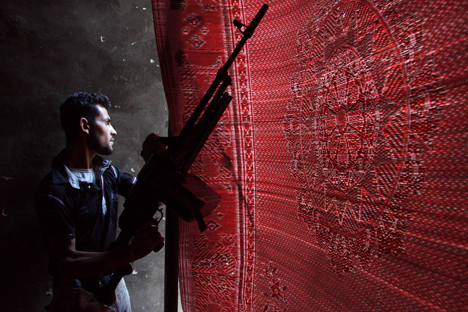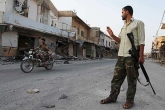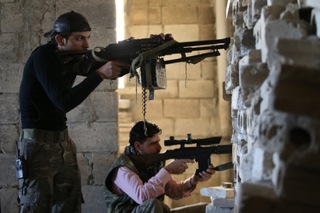UN still best bet to resolve Syrian crisis

Syria has already proven a humanitarian disaster with death of more than 100,000 people and displacement of millions. Source: Reuters
The reported use of chemical weapons in Syria on August 22 has gotten various players including the United Nations, Russia and US to assert that the issue needs to be resolved swiftly. There are, however, differences of perceptions about the exact means to address the issue. But the common ground from these approaches is that no party has disputed the role of the United Nations as a major arbiter in resolving the crisis.
Russia’s foreign ministry raised concerns about any unilateral action in Syria as any such action “bypassing the United Nations will ... lead to further escalation (in Syria) and will affect the already explosive situation in the Middle East in the most devastating way.” The ministry’s statement came after the prospects of the US military intervention in Syria started getting widely publicised in the media. Though the US has not explicitly declared its policy to intervene, media reports particularly after a meeting of important officials with President Obama in the wake of the chemical weapons attack has given rise to the speculation that Washington may be pushed to take such a step. Obama’s statement that if a chemical weapon was used by the Assad regime then the conflict would require ‘America’s attention’ has contributed to such a perception.
Related:

Why Russia won’t throw Syria under the bus
US chemical weapons report in Syria ‘fabricated’ – Russian MP
The Russian foreign ministry decisively urged the US not to take any action that amounts to a violation of international law. The telephonic conversations between top diplomats of Russia and the US, Sergei Lavrov and John Kerry, after reports of a chemical attack, emphasised on an objective investigation into the incident. They also focused on a multilateral approach in the form of a peace conference to bring the Assad regime and the Opposition to the dialogue table. Though the conference idea has been around since June, it has not taken concrete shape due to the calculation of some stakeholders that the conflict can be resolved by means of force.
One of the major developments that need emphasis is Russia’s overt support to the UN inspection to find the real culprit behind the attack in Damascus suburbs of Arbeen, Zamalka and Ein Tarma on August 21 that killed about 1300 people. The Russian foreign ministry stated that “the Russian side called on the Syrian government to cooperate with the U.N. chemical experts. It is now up to the opposition, which should guarantee safe access for the mission to the alleged place of the incident.” Such an approach was in consonance with the UN Secretary General Ban Ki-moon’s call for UN inspection into the site. Ban reasoned that there is “no good reason why any party, either government or opposition forces, would decline this opportunity to get to the truth of the matter,” and urged swift investigation into the incident. The Syrian government has reportedly consented to the inspection by the UN investigators.
It may be possible that chemical weapons were used at the behest of the Opposition to bring a third party, particularly the US, into the brink of war in Syria. It needs mention that Obama asserted a year earlier that any use of chemical weapons by the Assad regime would amount to crossing a “red line,” thus propelling the US military intervention. China’s caution makes sense as it has opposed any move to “prejudge” the outcome of the investigation. China’s foreign ministry observed that “the UN inspection team has already gone to Syria to start their probe, and China hopes and believes they can fully consult with the Syrian government to ensure the smooth progress of the investigation work.”
Syria has already proven a humanitarian disaster with death of more than 100,000 people and displacement of millions. The apparent ineffectiveness of the United Nations to address the issue is not only a setback to multilateral institutions but also a grim blot at the prospects of rise of a global order in which concerns for international peace and security are taken seriously.
Any use of unilateral force, without the sanction from the UN, would not only dent the authority of the apex global body but also give rise to the prospects of a unilateral assertion of power to address an issue which has fallouts for the whole Middle East region and beyond. The best course would be to wait patiently for the results of the UN inspection which needs to be carried under a transparent watch and without any obstruction from any sides. The future course of action could then be decided collectively without predominance of a particular stakeholder to the conflict.
Dr. Debidatta Aurobinda Mahapatra is an Indian commentator. His areas of interests include conflict, terrorism, peace and development, Kashmir, South Asia, and strategic aspects of Eurasian politics.
All rights reserved by Rossiyskaya Gazeta.
Subscribe
to our newsletter!
Get the week's best stories straight to your inbox
